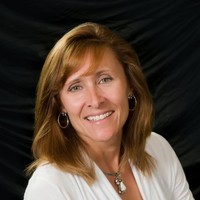But then in the last handful of years things started to change. Auditors began to arrive on Monday instead of Sunday; then, they left on Thursday instead of Friday. For the past year even before the pandemic set in auditors would spend two to three days in the field instead of a full week. And rather than a full team, two or three auditors would make the trip.
Those abbreviated trips were made possible, in part, because businesses made technology investments in e-signatures, individual VPN access, and secure document exchange portals. Portals, in particular, allow credit unions to submit documents before auditors arrive, creating a more efficient review process. CLA, BKD, and Moss Adams had all adopted this functionality before the pandemic.
100% of the assistance list was uploaded electronically prior to the on-site audit work starting, says Chad Garber, partner at BKD. We would start the audit off site and then complete it in the field. Now, we’re doing all of it remotely.
Of course, remote work has presented its share of challenges, especially in regard to communication.
There’s plenty of prep work that goes into an audit and moving audits from in-person to remote-only has necessitated the sharing of information weeks before the actual audit dates. Credit unions must find the proper documents and load them into the secure portal. There are no longer quick conversations in the hallway or Q&As in conference room, so an answer that isn’t readily available in a document can delay the audit.
Coordinating upfront and asking for certain documents in advance is critical, Mogensen from CLA says. If you don’t properly communicate ahead of time and what you need isn’t ready on the first day, that sets you behind from the start.
Video calls, texts, and emails are essential tools, but the auditors agree that these communication aids don’t fully replace the real thing.

Dustin Birashk, Partner, Moss Adams
The most difficult part has been not seeing our team members and clients in person, says Dustin Birashk, partner at Moss Adams.
Video calls offer a proxy to face-to-face communication, but Flaherty from Moss Adams says his clients prefer audio-only calls. Still, the pandemic generally has accelerated the positive use of technology tools.
The pandemic forced us to embrace the tools we have, Birashk says. Pre-pandemic, I avoided scheduling video calls because there was no sense of urgency to do so. Since remote working started, I’ve learned the power of the video call.
In addition to communication hurdles, remote work has presented challenges in balancing work life and home life, especially as the line between the two continues to blur.
We’re road warriors, says CLA’s Mogensen. It’s different to be home.
Flaherty from Moss Adams agrees, although he’s seen an improvement since the earliest weeks of the pandemic.
It’s more challenging to separate work life from personal life when you work and live in the same space, he says. You need to have a different mindset. There’s been a learning curve, but people are starting to develop a balance.
Overall, from adopting new technology to decreasing time spent on planes, trains, and automobiles, the forced move to remote-only work has presented gains for the audit industry. The auditors at CLA, BKD, and Moss Adams agree their remote audits, mostly with pre-existing clients, have run smoothly. As they look to extend their businesses, though, they might need to do so remotely and they are already thinking through best practices on how to do that.
It will be different from what it has been traditionally, BKD’s Garber says. It will be important to not fall into the trap of an email-only relationship. We’ll continue to adapt.
The auditors from Moss Adams are currently focused on strengthening existing relationships and believe lessons learned from those will translate to new ones as well.
This pandemic has taught us how to be more empathetic, listen better, and understand that everyone is dealing with their own issues, Birashk says.
What’s Different For Credit Unions?
CU QUICK FACTS
SunWest FCU
Data as of 03.31.20
HQ: Phoenix, AZ
ASSETS: $413.8M
MEMBERS: 51,899
BRANCHES: 8
12-MO SHARE GROWTH: 9.3%
12-MO LOAN GROWTH: 2.1%
ROA: 0.25%
SunWest Federal Credit Union ($413.8M, Phoenix, AZ) and Blue Federal Credit Union ($1.3B, Cheyenne, WY) are no strangers to remote audits. Each received their financial statement audit after the coronavirus pandemic forced their internal teams home and both found the process to be simple. However, they also learned plenty of lessons.
Both SunWest and Blue have completed remote financial statement audits for the past two years. For SunWest, that was part of a large move toward remote work; at Blue, it was out of necessity. In 2019, a large snowstorm in Cheyenne during Blue’s audit trapped its auditors at a nearby hotel.
They were shut in their rooms because you couldn’t get around town, says Kim Alexander, Blue’s chief financial officer. So, we went remote by default.
The remote audit is not dissimilar to a traditional on-site audit, Alexander says. Auditors had the same request list for information and documentation, and the credit union uploaded those files electronically. The auditor set up one-on-ones throughout the audit week to ask questions directly of Blue’s point person, the vice president of finance, who delegated work among team members as necessary.

Kim Alexander, CFO, Blue FCU
Both credit unions have long-term relationships with their current auditors and rely on email and conference calls in lieu of face-to-face conversations to pass information back and forth.
With tools such as Zoom and Microsoft Teams, face-to-face meetings are almost not necessary, says Lori Smith, SunWest’s CFO. The Phoenix-based credit union has even installed cameras in its board room so it can include more team members in future audit video calls.
Blue’s Alexander believes the credit union’s well-organized auditor has helped her team alleviate potential headaches and kept the back and forth to a minimum. Still, her team isn’t afraid to pick up the phone to ask questions when they arise.
We’ve always been open enough to reach out and say, Here’s what we’re going to book and how we’re going to account for it. Do you agree or disagree?’ Alexander says. We like doing that over email anyway so we have the question and answer in writing. Already that’s a remote process.
CU QUICK FACTS
Blue FCU
Data as of 03.31.20
HQ: Cheyenne, WY
ASSETS: $1.3B
MEMBERS: 5192,999
BRANCHES: 14
12-MO SHARE GROWTH: 23.9%
12-MO LOAN GROWTH: 7.6%
ROA: 0.74%
The pandemic, however, has added another layer of wrinkles to the audit process. At SunWest, where most of the credit union’s support staff is remote, one designated employee located documents that were not available in a digital form. And because the coronavirus pandemic has created economic uncertainty among large populations of America, the auditor requested a larger scope of information than in the past. Additionally, CFO Smith says document upload requests often happened all at once and were flagged to occur as soon as possible.
When the CPA staff was in house, they took turns coming into our offices with questions and requests and spaced those out, Smith says.
The pandemic has changed some business operations forever. Auditors predict the annual audit, for example, will likely remain remote. But auditors and credit unions alike are prepared. They’ve adopted new technology and have adjusted to work life at home. Auditors might never resume the road warrior lifestyle they once lived, but that might ultimately offer more gains than losses.